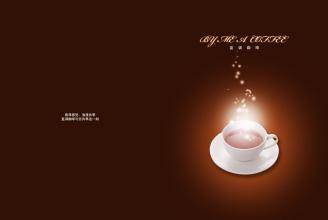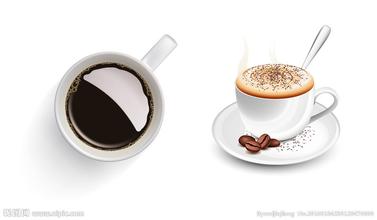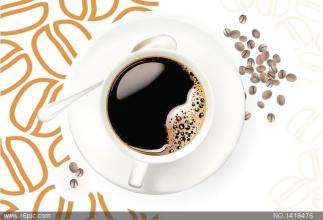Aromatic and mild Salvadoran Himalayan coffee Flavor Taste Manor Features
Bahia culture originated from the African slave culture at that time, and the traditional music, dance, art, food and living habits of Africans can be found and seen in Bahia. In the square of El Salvador, black women can often be seen knitting small braids for non-black girls, and some black people are selling black jewelry, musical instruments and blankets. Various activities bring a strong sensory stimulation to tourists from other places. Today, the ancient city is still the center of the development and spread of Brazilian black culture. If you're lucky, you'll have a chance to see the mysterious Candomble ritual.
Food culture
In addition to music, the best embodiment of blending is the local diet. Brazilian cuisine is already rich, and Bahia's diet is more creative. The Portuguese brought meat and dessert, the Indians contributed cassava, nuts and cocoa beans, and West Africans added palm oil, herbal chili peppers and coconut milk. The Moqueca dish involves adding soft-shell crabs and shrimp to vanilla, tomato, garlic, onion and coconut milk, stir-fry over medium heat in African palm oil, and serve with coconut milk rice. It has always been believed that coconut milk is only used in sweets and drinks. Bahia people even mix coconut milk with chili and turmeric to stir-fry and braise rice. El Salvador retains many famous typical Renaissance buildings, and there are still many colonial buildings, including Brazil's first cathedral and the oldest medical school. There are a large number of 16th century buildings in the city, and they are religious buildings, many of which are decorated with 17th and 18th century carvings and many stripes made of colored mud, reflecting the characteristics of the colonial period. There are many churches in this city, with more than 160 according to statistics, with the largest number of churches in Latin America, with bright lines and peculiar Gothic churches; a baroque church with undulating lines and a sense of movement; the largest church is the church of Vasilla; the oldest is the church of our Lady of Martris; the most magnificent church of Saint Francis de Assis.
El Salvador Carnival is an important festival in Brazil, which is famous for its large-scale street parades and authentic music and dance. During the carnival, the place is full of music and dance, which is the truest embodiment of Brazilian tradition and carnival spirit.
Coffee from El Salvador is a specialty of Central America, where it is light, fragrant, pure and slightly sour. Like Guatemala and Costa Rica, coffee in El Salvador is graded according to altitude, and the higher the altitude, the better the coffee. The best brand is Pipil, which is what the Azbec-Mayan (AztecMayan) called coffee, which has been approved by the American Organic Certification Society (Organic Certified Institute of America). Another rare coffee is Pacamara, a hybrid of Pacas and Maragogype. The best place to produce the coffee is in western El Salvador, adjacent to Santa Ana, which is close to the border with Guatemala. Parkmara coffee is full-grained when the aroma is not too strong.
Salvadoran coffee-coffee from hot springs
Salvadoran coffee ranks side by side with Mexico and Guatemala as the producers of Asa and Merdo, and is fighting for the top one or two places in China and the United States with other countries. The highlands of origin are large coffee beans of all sizes, which are fragrant and mild in taste. Like Guatemala and Costa Rica, coffee in El Salvador is graded according to altitude. The higher the altitude, the better the coffee. It is divided into three grades according to elevation: SHB= Highlands, HEC= medium Highlands, and CS= lowlands.
El Salvador's unique high-grade variety Pacamara, Pacamara is a sudden variation of the bourbon species found by Pacas Pacas- in El Salvador and a hybrid with the giant bean Maragogype, a sudden variant of the Tibica species found in Brazil.
The interesting thing about Christmas farm coffee is that its refining method is secret, using mineral-rich hot spring water to process raw coffee beans. This farm is located in fertile volcanic soil and rich in natural hot spring water, so this natural hot spring water is all used in raw bean processing. There are many coffee gardens in the world, but this method is still rare.

Important Notice :
前街咖啡 FrontStreet Coffee has moved to new addredd:
FrontStreet Coffee Address: 315,Donghua East Road,GuangZhou
Tel:020 38364473
- Prev

Taste mellow Mexican coffee flavor Taste Manor characteristics Fine coffee beans Introduction
Water transportation, especially sea transportation, has undertaken the task of transporting some goods, domestic goods and outbound passengers in Mexico. According to the statistics of the national port system, from January to December 2013, the national freight container load reached 288 million tons of cargo, an increase of 1.6% year-on-year. Among them, the deadweight of oil and oil derivatives alone reached 122 million tons, accounting for 42.5% of the total cargo volume.
- Next

Costa Rican coffee producer Saint Roman Coffee Flavor with 1/3 of global coffee consumption
The topography of Costa Rica is that the coast is surrounded by plains, while the middle is cut off by rugged mountains. The country declared 200 nautical miles in its exclusive economic zone and 12 nautical miles in its territorial sea. The climate belongs to the tropics and subtropics, and some of them are new tropics. [3] the climate of Costa Rica is so different that it completely subverts the classification of the four seasons of the year. There are only two seasons, April to December.
Related
- Detailed explanation of Jadeite planting Land in Panamanian Jadeite Manor introduction to the grading system of Jadeite competitive bidding, Red bid, Green bid and Rose Summer
- Story of Coffee planting in Brenka region of Costa Rica Stonehenge Manor anaerobic heavy honey treatment of flavor mouth
- What's on the barrel of Blue Mountain Coffee beans?
- Can American coffee also pull flowers? How to use hot American style to pull out a good-looking pattern?
- Can you make a cold extract with coffee beans? What is the right proportion for cold-extracted coffee formula?
- Indonesian PWN Gold Mandrine Coffee Origin Features Flavor How to Chong? Mandolin coffee is American.
- A brief introduction to the flavor characteristics of Brazilian yellow bourbon coffee beans
- What is the effect of different water quality on the flavor of cold-extracted coffee? What kind of water is best for brewing coffee?
- Why do you think of Rose Summer whenever you mention Panamanian coffee?
- Introduction to the characteristics of authentic blue mountain coffee bean producing areas? What is the CIB Coffee Authority in Jamaica?

